
Arctostaphylos montaraensis, known by the common name Montara manzanita, is a species of manzanita in the family Ericaceae.
Hackelia brevicula is a species of flowering plant in the borage family known by the common name Poison Canyon stickseed.

Leptosiphon androsaceus is a species of flowering plant in the phlox family known by the common name false babystars.
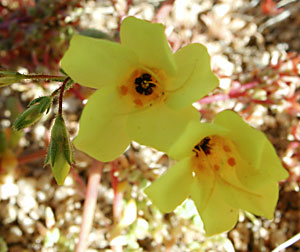
Leptosiphon aureus is a species of flowering plant in the phlox family known by the common name golden linanthus.

Leptosiphon ciliatus is a species of flowering plant in the phlox family known by the common name whiskerbrush.
Leptosiphon filipes is a species of flowering plant in the phlox family known by the common name thread linanthus.

Leptosiphon grandiflorus is a species of flowering plant in the phlox family known by the common names large-flower linanthus and large flowered leptosiphon.
Linanthus killipii, known by the common name Baldwin Lake linanthus, is a rare species of flowering plant in the phlox family.
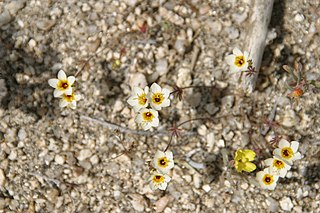
Leptosiphon lemmonii is a species of flowering plant in the phlox family known by the common name Lemmon's linanthus.
Leptosiphon nudatus is a species of flowering plant in the phlox family known by the common name Tehachapi linanthus.

Leptosiphon nuttallii is a species of flowering plant in the phlox family known by the common name Nuttall's linanthus.

Leptosiphon parviflorus is a species of flowering plant in the phlox family known by the common name variable linanthus.

Leptosiphon pygmaeus is a species of flowering plant in the phlox family known by the common name pygmy linanthus.
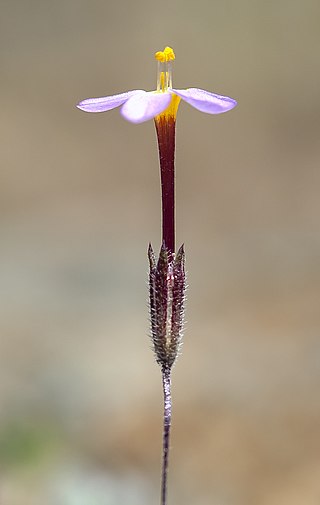
Leptosiphon rattanii is a rare species of flowering plant in the phlox family known by the common name Rattan's linanthus.
Leptosiphon serrulatus is a rare species of flowering plant in the phlox family known by the common name Madera linanthus. It is endemic to California, where it is known from the chaparral and woodlands in the Sierra Nevada foothills, from Madera to Kern Counties.

Oenothera californica, known by the common name California evening primrose, is a species of flowering plant in the evening primrose family.
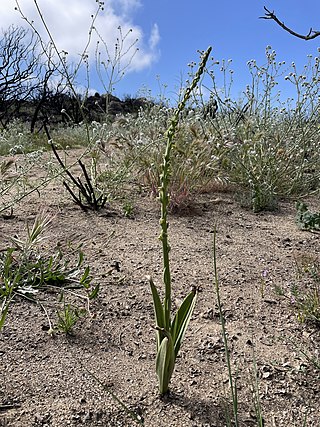
Platanthera cooperi is an uncommon species of orchid known by the common names Cooper's rein orchid and chaparral rein orchid.
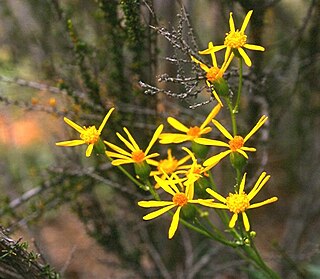
Packera layneae, known by the common name Layne's ragwort and Layne's butterweed, is a rare species of flowering plant in the aster family.
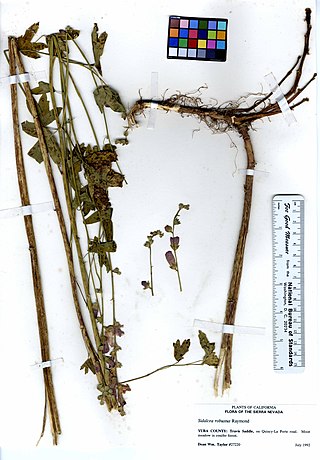
Sidalcea robusta is an uncommon species of flowering plant in the mallow family known by the common name Butte County checkerbloom.
Navarretia ojaiensis is a rare species of flowering plant in the phlox family known by the common name Ojai navarretia.














